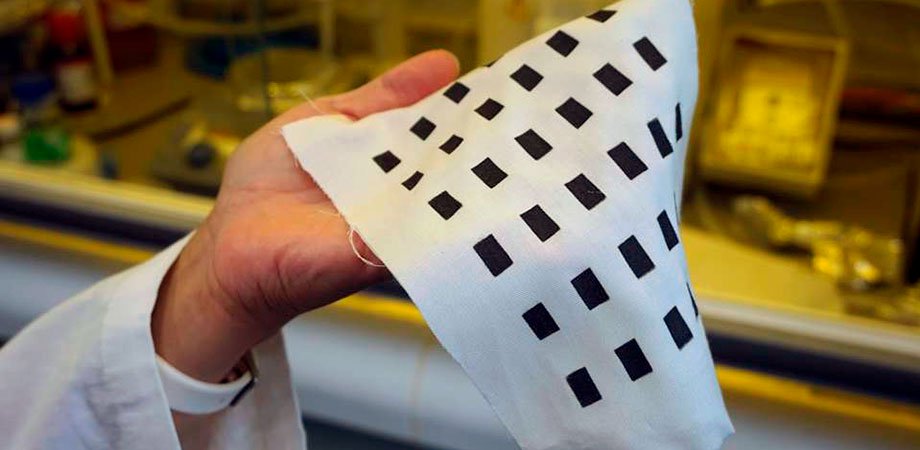Scientists from RMIT University, Melbourne/Australia, have developed a cost-efficient and scalable method for rapidly fabricating textiles that are embedded with energy storage devices. In just 3 minutes, the method can produce a 10×10 cm smart textile patch that is waterproof, stretchable and readily integrated with energy harvesting technologies.
The technology enables graphene supercapacitors – powerful and long-lasting energy storage devices that are easily combined with solar or other sources of power – to be laser printed directly onto textiles.
In a proof-of-concept, the researchers connected the supercapacitor with a solar cell, delivering an efficient, washable and self-powering smart fabric that overcomes the key drawbacks of existing e-textile energy storage technologies. The research analysed the performance of the proof-of-concept smart textile across a range of mechanical, temperature and washability tests and found it remained stable and efficient. The researchers have applied for a patent for the new technology, which was developed with support from RMIT Seed Fund and Design Hub project grants.

